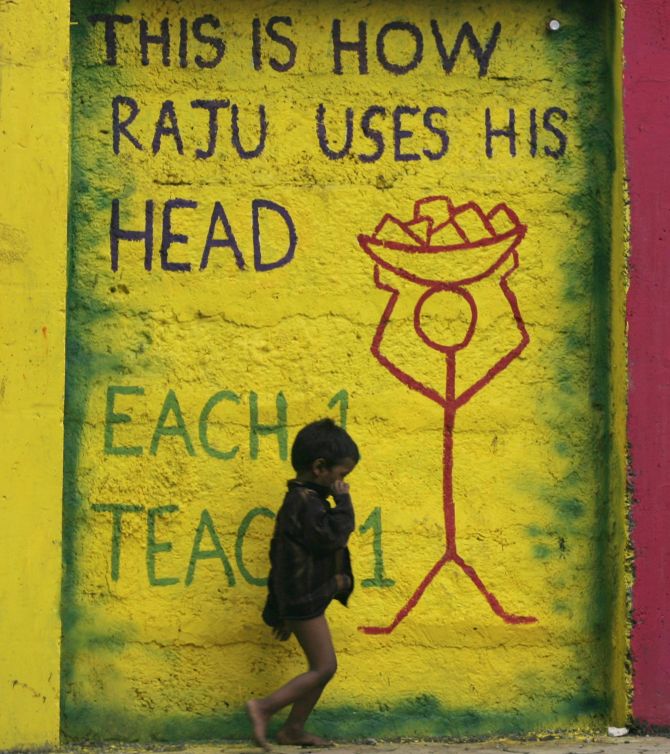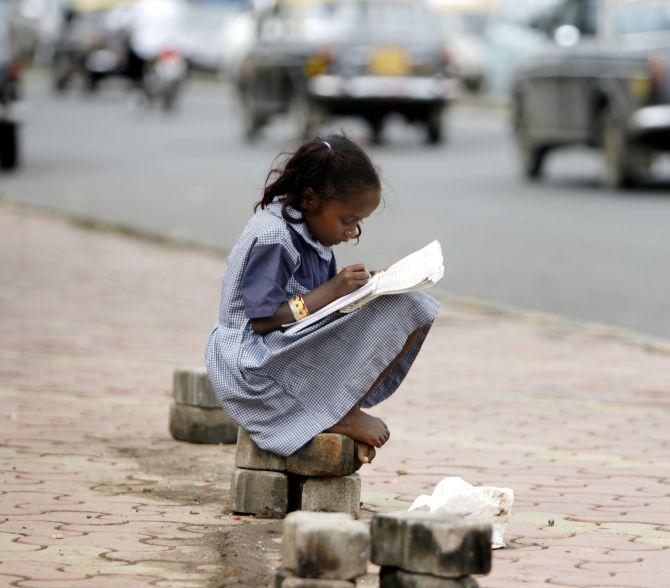Photographs: Arko Datta/Reuters Yoshita Singh
India, Indonesia and Pakistan each have more than a million children out of school, according to a United Nations report which said the global number of unschooled children aged 6 to 11 is still as high as 58 million, showing little overall improvement since 2007.
The United Nations Educational, Scientific and Cultural Organisation report said that India had 1.4 million children out of school in 2011 but the country is among 17 other nations that have managed to reduce the number of out-of-school children in the past decade.
Combined with UNESCO’s recent news that aid to education has fallen yet again, the lack of progress in reducing out of school numbers confirms our fears -- there is no chance whatsoever that countries will reach the goal of universal primary education by 2015,” UNESCO Director-General Irina Bokova said in a statement.
“Pakistan had 5.4 million children out of school in 2012 while the figure for Indonesia was 1.3 million.
…
1 million children in India still don't go to school
Image: A small girl sits on a Mumbai road with her hand out begging for almsPhotographs: Arko Datta/Reuters Yoshita Singh
The UNESCO’s policy paper said that positive change is possible, spotlighting success in 17 countries that have reversed that trend over the past decade.
The 17 countries, including Burundi, Yemen, Ghana, Nepal, Rwanda, India, Iran and Vietnam, accounted for about one-quarter of the global out-of-school population in 2000. But they managed to reduce their out-of-school numbers by 86 per cent, from 27 million to less than four million, in little over a decade.
The UNESCO Institute for Statistics, which produced the policy paper, said that 15 million girls and 10 million boys, constituting around 43 per cent of those out of school, are unlikely to ever get access to primary education if the current situation remains the same.
“We cannot meet this news with further inertia. On the contrary, we must sound the alarm and mobilise the political will to ensure that every child’s right to education is respected,” she said.
…
1 million children in India still don't go to school
Image: A girl belonging to a homeless family, studies school books at a pavement in MumbaiPhotographs: Arko Datta/Reuters Yoshita Singh
The lack of global progress is largely due to high population growth in sub-Saharan Africa, which is now home to more than 30 million out-of-school children. Most of them will never start school and those who do are at risk of dropping out.
The paper also shows critical gaps in the education of older children aged 12 to 15. Globally, 63 million adolescents were out of school in 2012.
Numbers have fallen by nearly one-third since 2000 in South and West Asia, the region has the largest population of out-of-school adolescents at 26 million.
According to the UNESCO paper, abolishing school fees, introducing more relevant curricula, devoting increased attention to ethnic and linguistic minorities and providing financial support to families in need could have a positive role in promoting and extending the right to education to every human being.
Bokova stressed that progress is possible and that many countries have been key examples in driving positive changes in education for all.




article